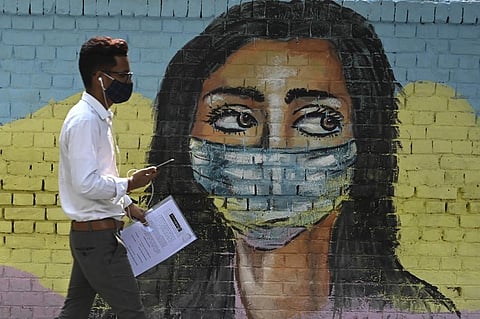

NEW DELHI: Nearly 25 per cent of the population or every one in four persons in India has shown evidence of past infection of coronavirus, the third national serosurvey conducted by the ICMR revealed.
The survey, whose findings are yet to be released, has estimated that the country's actual Covid-19 infection size is 30 crore -- even as the number of confirmed cases stands at just over 1 crore, sources familiar with the results confirmed to The New Indian Express.
“The figures are much higher in many cities, strengthening the epidemiological theory that some cities in the country may be approaching herd immunity as evident in the falling daily numbers of new cases,” said an official associated with the surveillance exercise. “Like the previous two surveys, the seropositivity has been found to be way higher particularly in urban slums and generally in urban areas as compared to rural areas".
He added that the results of the survey are likely to be made public within the next few days.
The third serosurveillance exercise carried out in December and January was aimed at testing for antibodies against SARS-CoV-2 in blood samples of 400 randomly selected persons from each of the same 70 districts across 22 states where the previous two surveys in May and August were conducted.
In addition, samples from 100 healthcare workers from both government and private facilities in each of these 70 districts were also collected for the antibody tests. Unlike the previous surveys that only looked for antibodies against the viral nucleocapsid, researchers in the third survey also tested for spike protein antibodies which last longer in the bloodstream.
The first survey in May-June had shown an average seroprevalence of less than 1 per cent and estimated the country's infection size to be about 60 lakhs. However, the presence of antibodies in some clusters in big cities—such as Dharavi in Mumbai (40 per cent) was found to be far higher than the national average in the first survey itself.
In the next survey in August, the average seropositivity across districts was found to be about 7 per cent and it had also predicted a doubling time of about 27 days which suggested that the estimated 7 crore infections would have grown four times by December.
Country’s Covid-19 figures have been steadily declining since September when the infectious disease graph had peaked with over 95,000 cases being detected every day.
Scientists and researchers in many countries have estimated that the epidemic will slow down rapidly when about 60-70 per cent of the population in an area is exposed to the virus and recovered.